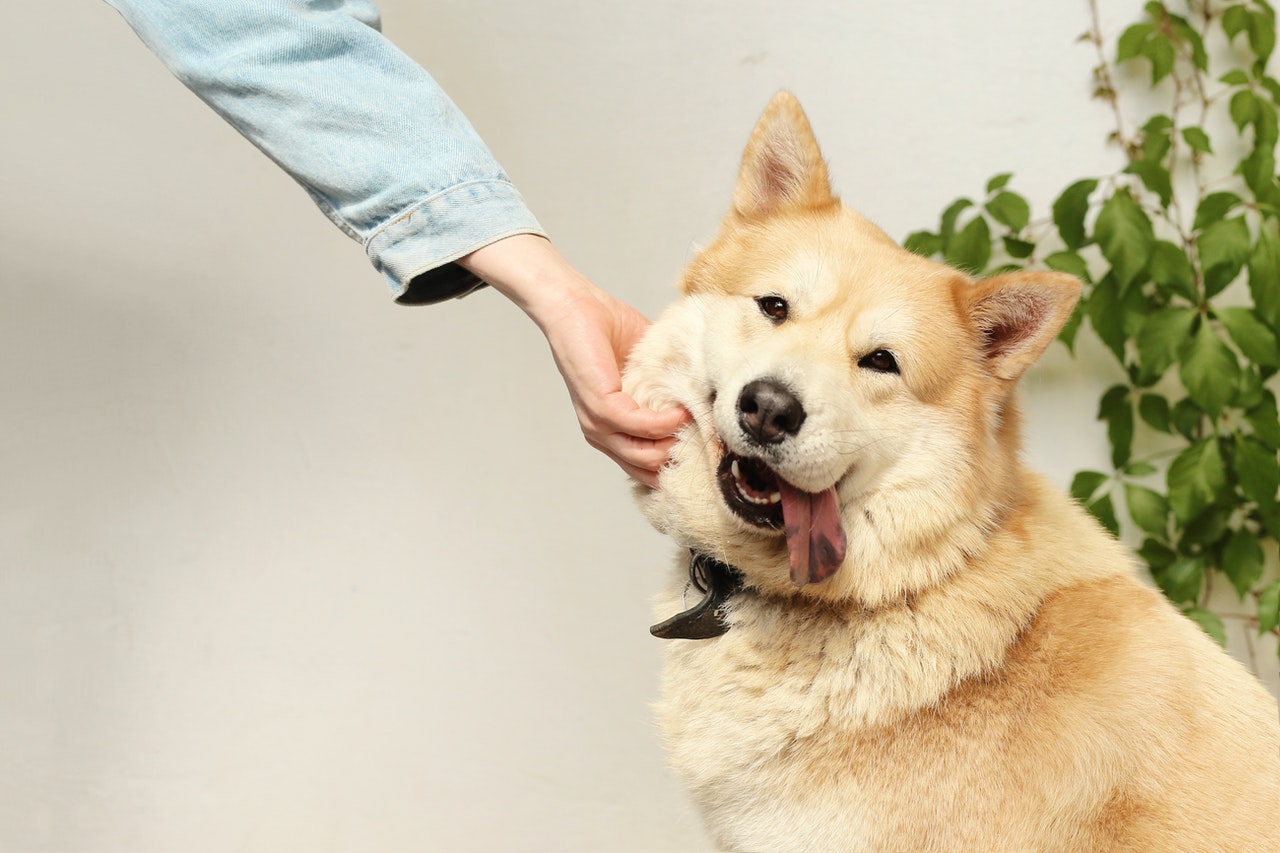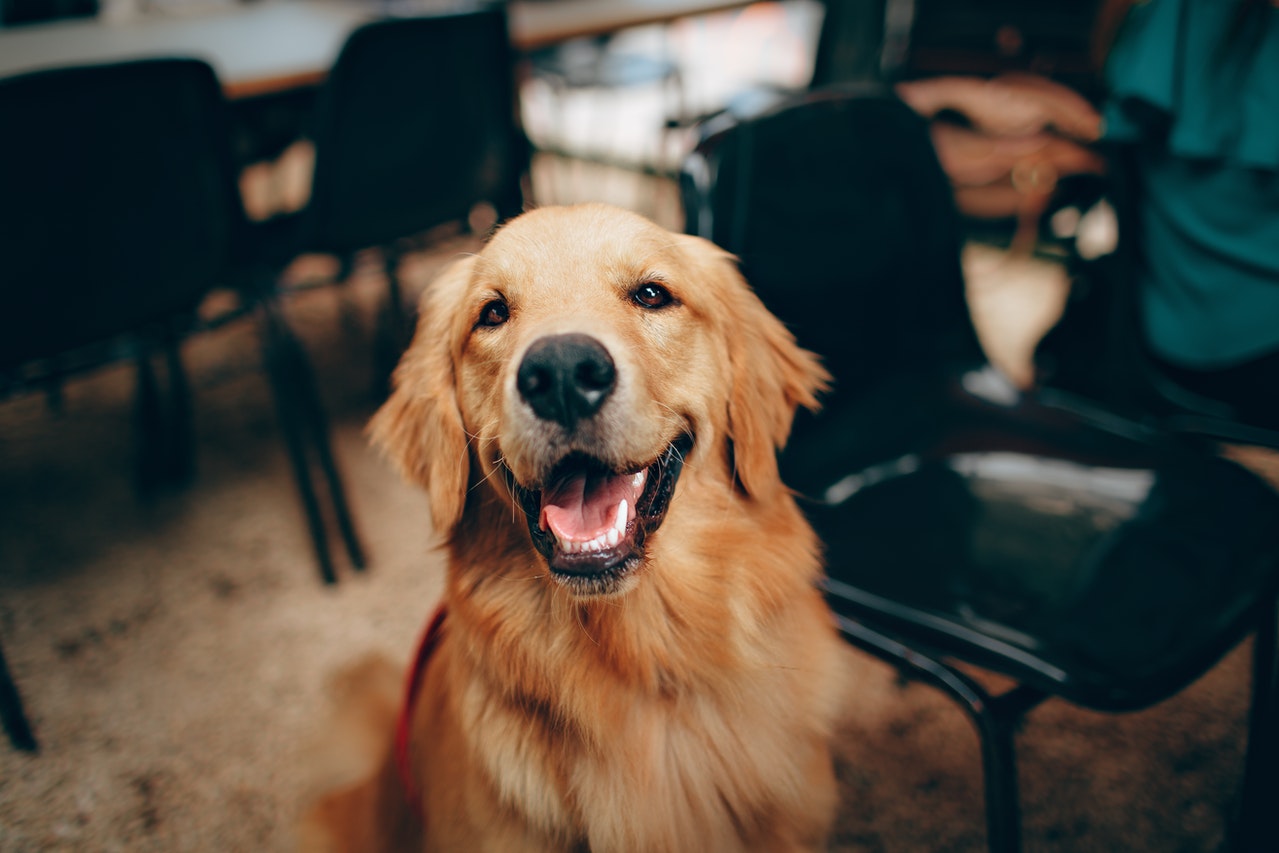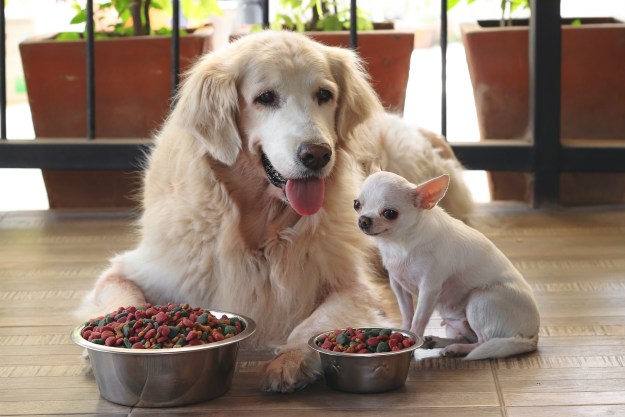Did you know that dogs and humans have similar brain structures? Just like us, dogs experience emotions like happiness, anger, excitement, love, and disgust. However, a dog’s brain is more similar to that of a toddler than that of an adult, meaning their range of emotions is somewhat limited. Your dog’s expressions can run the gamut from a playful smile to an aggravated sneer, but have you ever wondered what dog teeth chattering means? There are several causes of dog jaw chattering. Some are simple and easily remedied, and others require a trip to the vet. Here’s what it means if your dog’s teeth are chattering.

Why do dogs chatter their teeth?
As a pet parent, you get to know your dog’s personality quirks inside and out. You know what his favorite toy is, his preferred type of food, and his go-to place to sleep. It’s understandable that you’ll feel alarmed if you notice your pup exhibits a behavior he’s never shown before now, especially one as unexpected as chattering teeth. Here are a few perfectly benign reasons your pup may be chattering his teeth.
It’s cold outside
Just because your pooch is wearing a fur coat doesn’t mean he’s toasty and warm. Similar to our response to cold weather, a dog’s teeth may begin to chatter when the temperature dips. Try not to leave your dog outside all day while you’re at work once it gets cold out. If you absolutely have to leave your dog out during the day, make sure he has access to a heated dog house so he can warm himself up.
Your pup is excited about something
Have you ever seen a cat’s teeth chatter? It often happens when a frisky feline spots a bird or a lizard through a window, and it’s usually accompanied by a chirping sound. While this behavioral quirk is less common in dogs, some pups can work themselves up into such a state that they can’t stop their teeth from chattering with excitement. If your dog’s teeth are chattering immediately after playtime, don’t be alarmed. Your pooch is fine; he just can’t contain his excitement.
Your dog is tracking a scent
Your dog’s olfactory system is a powerhouse, but did you know your pooch has a secondary scent-collection system? This system is located in your pup’s mouth. Your dog’s teeth may chatter when this secondary scent-collection system is activated, and he’ll most likely drool a lot too.

What is teeth chattering a sign of?
In many instances, your dog’s teeth chattering is nothing to be concerned about. Unfortunately, not all reasons are benign. Some are concerning and require a trip to the vet as soon as possible. Chattering teeth may be a symptom of the following health problems:
Abscessed tooth
If your pooch has an abscessed tooth, he may chatter his teeth to relieve some of the pressure caused by infection and inflammation. Other symptoms to look out for include facial swelling, increased drooling, loss of appetite, and bad breath.
Periodontal disease
Periodontal disease, a progressive disease caused by the buildup of bacteria along the gum line, affects almost 90% of all dogs by the time they reach two years of age. Bloody gums, drooling, loss of appetite, and teeth chattering may indicate that your pup is suffering from periodontal disease.
Anxiety
Just like humans, dogs can suffer from anxiety. Incessant barking, pacing, panting, teeth chattering, and chewing on household items are all good indicators that your dog may have anxiety. Speak to your vet about the possibility of using behavioral training or medication to help alleviate your dog’s symptoms.
Seizure disorder
Some neurological conditions, such as epilepsy, cause dogs to chatter their teeth during seizures. In fact, epilepsy is much more common in dogs than it is in humans. Another possibility is focal motor seizures, which are centered in your dog’s mouth and ultimately won’t cause your pup much trouble.
Canine multiple system degeneration
In the beginning stages of canine multiple system degeneration, your dog’s teeth may chatter. The disease is progressive and may cause difficulty standing and walking in later stages. While there is no cure for this disorder, your vet can prescribe medication to help alleviate the symptoms.

Always consult your vet
While many causes for your dog’s chattering teeth are harmless, others require veterinary intervention. If your pup isn’t cold and you haven’t finished an epic play session in the backyard, we recommend taking your pup to the vet at the first sign of teeth chattering. Your dog’s health is your top priority, and most cases of teeth chattering can be treated easily with prompt, attention.
Editors' Recommendations
- Why does my dog have a bald patch on their tail? Here are the answers you need
- Looking for signs your dog has ticks? These telltale symptoms mean you have a flea or tick problem
- Xylitol is dangerous for dogs: 10 surprising products that contain it as a hidden ingredient
- How hot does concrete get in the sun? The answer might shock you
- Science says dogs cry tears of happiness when reunited with their humans




